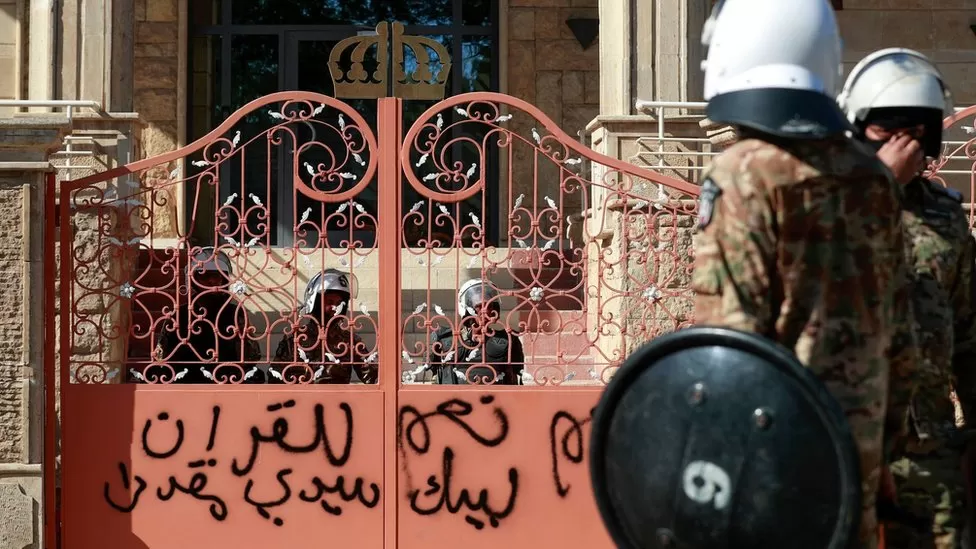LONDON – The Iranian government has refused to send a new ambassador to Sweden after a protester burned a Quran outside a mosque in the capital, Stockholm.
An Iraqi-born refugee burnt the Muslim holy book outside a mosque on the first day of Eid al-Adha.
Swedish police charged him with agitation against an ethnic or national group last week.
Iran’s foreign minister, Hossein Amirabdollahian, blamed the government for granting him the protest permit.
Plans to burn copies of the Quran have sparked riots in Sweden in recent months. Police had rejected similar protest applications recently, but courts then ruled that they should be allowed on freedom of expression grounds.
Muslims consider the Quran the sacred word of God and view any intentional damage or show of disrespect towards it as deeply offensive.
Mr Amirabdollahian said despite appointing a new ambassador, Tehran would not be sending them.
“The process of dispatching them has been held off due to the Swedish government’s issuing of a permit to desecrate the Holy Koran,” he said in a statement on Twitter.
Iraq’s foreign ministry also asked its Swedish counterpart to extradite the man who burned the Quran. They argued that since he still holds an Iraqi citizenship, he should face trial in Baghdad.
After the incident, thousands of Iraqi protesters raided the Swedish embassy in Iraq at the instigation of the populist Shia cleric, Moqtaha al-Sadr. They left after fifteen minutes when a security force was deployed.
The prime minister of Sweden, Ulf Kristersson, denounced the raid on the embassy, but also said it was time for Sweden to reflect on its identity.
“It is of course completely unacceptable for people to unlawfully break into Swedish embassies in other countries. I think we also need to reflect in Sweden. It is a serious security situation, there is no reason to insult other people,” he said.
Following an emergency meeting of the Organisation of Islamic Cooperation in Jeddah on Sunday, the Saudi-based organisation called for member states to take “unified and collective measures” to stop countries burning copies of Islam’s holy book.
The secretary general, Hissein Brahim Taha said the burnings of the Quran were “not mere ordinary Islamophobia incidents” and urged countries worldwide to adhere to international law “which clearly prohibits any advocacy of religious hatred”.
Morocco, Kuwait, Jordan and the United Arab Emirates – among other countries – have recalled their ambassadors to Stockholm following the incident.
It has also sparked anger in other Muslim-majority nations including Turkey – a Nato member which has a say over whether Sweden also gains membership.
On Wednesday, the country’s foreign minister tweeted that it was “unacceptable to allow anti-Islam protests in the name of freedom of expression”.
















